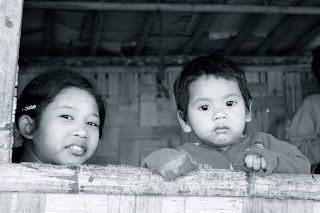Something I chanced upon...
__________________
The Temasek Review, Singapore - 1 Jan 10
CNA’s spin on MM Lee’s NatGeo interview, minus the “hide” remarks
Written by Our Correspondent
Stung by the massive outcry in cyberspace over MM Lee Kuan Yew’s disparaging remarks about Singaporeans, the state media moves into a damage control mode in a lame attempt to limit the fallout from the PR disaster by omitting the actual words used by Lee in the interview with National Geographic magazine in July 2009.
Though NatGeo journalist Mark Jacobson’s article which was based largely on the interview first appeared in the online version of the National Geographic magazine on 20 December 2009, it made the headlines only after The Temasek Review had highlighted Lee’s words 5 days later.
In an article titled “Social cohesion key to keeping Singapore going: MM Lee” published on CNA yesterday, Imelda Saad tried to lessen the negative publicity surrounding Lee’s message with a toned-down version:
“Minister Mentor Lee Kuan Yew has expressed concerns over how the younger generation may be less driven compared to the growing number of foreigners in the country…..Mr Lee noted that if Singaporeans do not work hard, they may lose out.”
[Source:
Channel News Asia ]
Channel News Asia is owned by MediaCorp, the sole broadcasting company in Singapore. It is in turn controlled by Temasek Holdings whose CEO is Ho Ching, the daughter-in-law of Lee.
Contrast this to Mark Jacobson’s passage in his article “The Singapore Solution”:
“
Over time, the MM says, Singaporeans have become “less hard-driving and hard-striving.” This is why it is a good thing, the MM says, that
the nation has welcomed so many Chinese immigrants (25 percent of the population is now foreign-born).
He is aware that many Singaporeans are unhappy with the influx of immigrants, especially those educated newcomers prepared to fight for higher paying jobs. But taking a typically Darwinian stance, the MM describes the country’s new subjects as “hungry,” with parents who “pushed the children very hard.”
If native Singaporeans are falling behind because “the spurs are not stuck into the hide,” that is their problem .”
[Source:
National Geographic ]
Nowhere did Lee express his concerns about the younger generation. In fact, he said plainly that it is their “problem” if they are falling behind the Chinese immigrants.
If Mark Jacobson had misquoted Lee in anyway, he would have been sued for defamation a long time ago. Since Lee has not taken legal action against him, we can safely assume that Lee had meant what he said and the article is a fairly accurate reflection of Lee’s thoughts about Singaporeans and the new Chinese immigrants.
Furthermore, the words “less hard-driving and hard-striving” and “the spurs are not stuck in the hide” were indeed mentioned by Lee as recorded in the full transcript of the media interview as well.
It is unbecoming of Channel News Asia to deliberately distort the words of Lee in order to lessen their impact. Perhaps Lee had wanted to send a wake-up call to young Singaporeans who are getting “complacent”?
CNA should interview Lee and asked him to clarify what he has meant exactly in the interview instead of trying ways and means to twist and turn his words in order to salvage his embattled image.
In the past, Lee’s words would have gone unnoticed if the state media did not report on it. With the continued growth of the new media and socio-political news sites with a large readership like The Temasek Review, it is foolhardy to continue to practice self-censorship to pull a wool over the eyes of the people.
Note - the bold red words by Temasek Review









